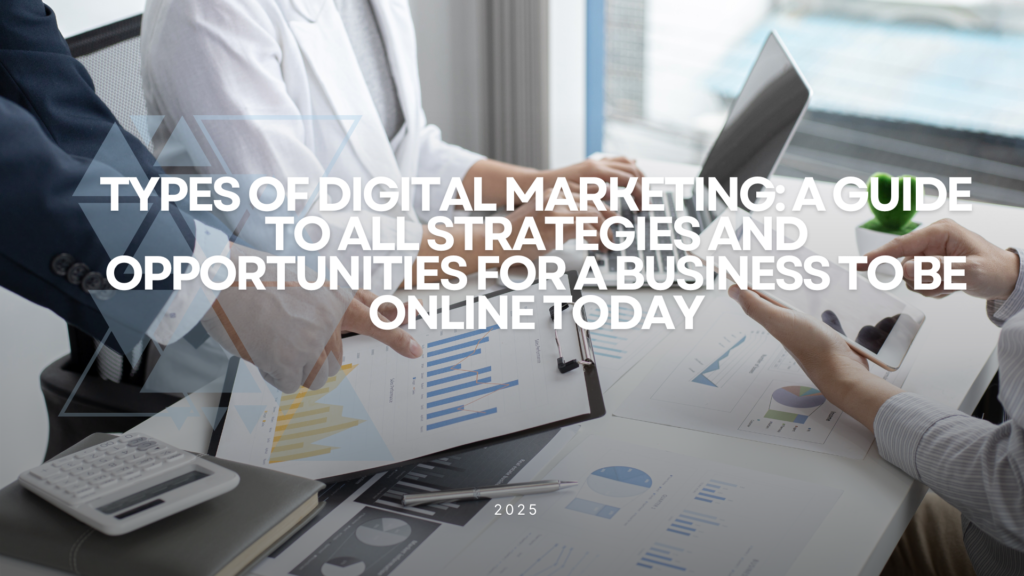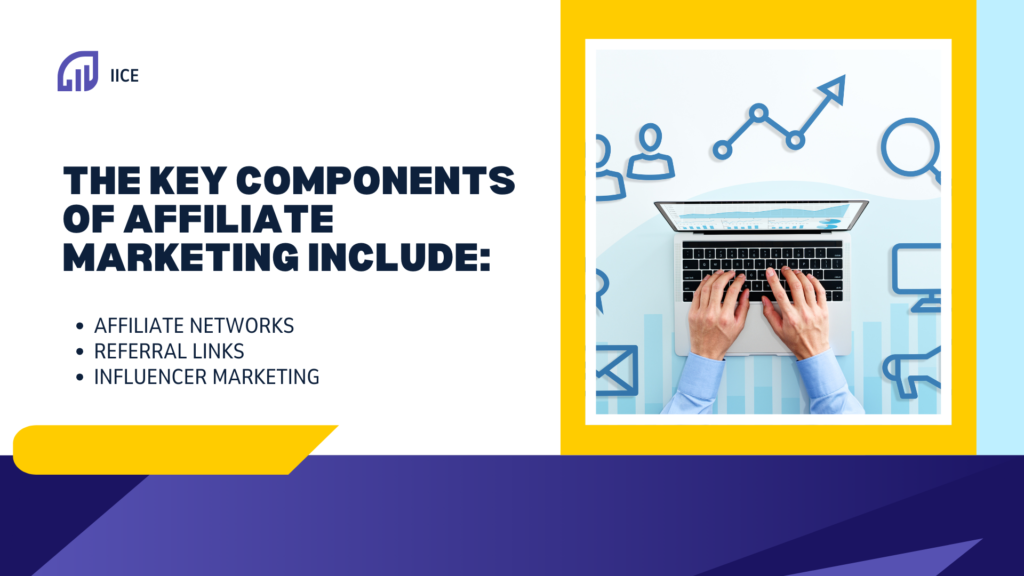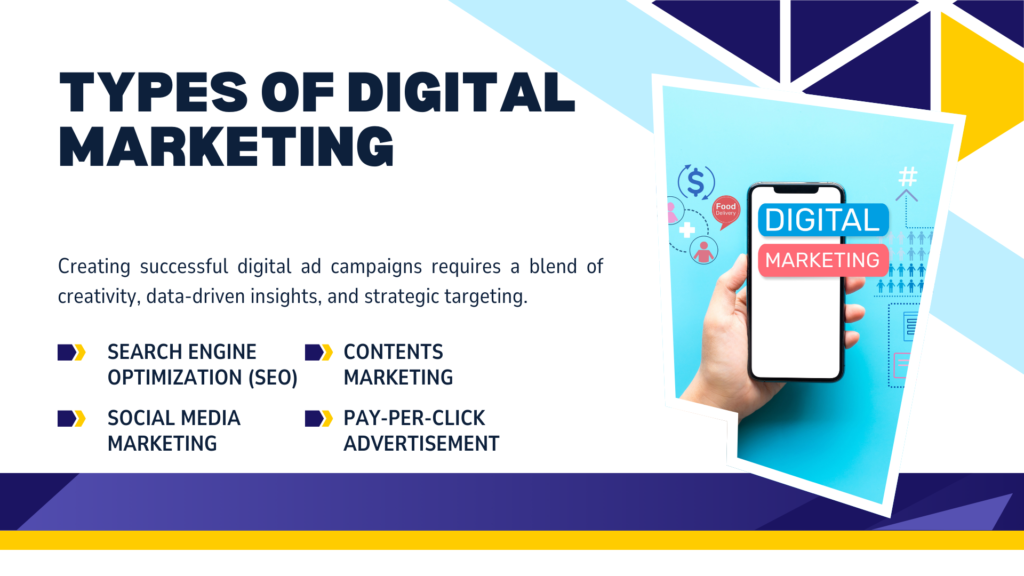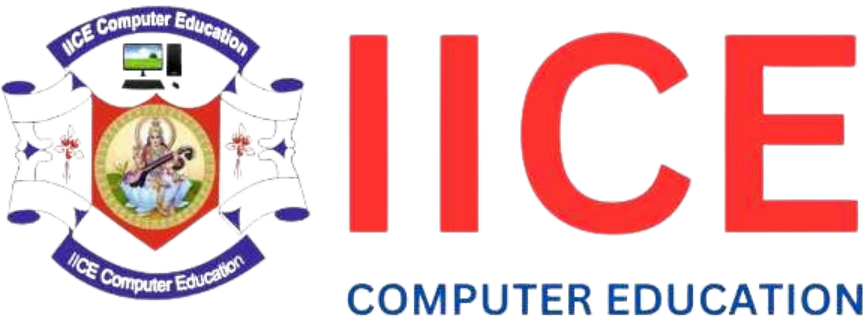
Today, the growing power of the internet and social media is pushing more businesses and brands online than traditional ways. The importance of having an expensive online presence has never been so important to businesses. This is where digital marketing comes in—an umbrella term for all marketing efforts that use the internet or an electronic device. Whether you’re a business owner looking to expand your brand’s reach or someone aspiring to build a career in marketing, understanding the types of digital marketing and their relevance is crucial.
We will discuss the types of digital marketing, the role of jobs in digital marketing, and the digital marketing syllabus to help you understand the kind of skills you would require for this ever-growing field.
What is Digital Marketing?
Digital marketing refers to the total effort of marketing involving the internet or electronic devices to communicate with people regarding products and services. This comprises a large scale of tactics like reaching out to targeted audiences, creating brand awareness, and driving traffic really in an effort to convert visitors into customers.
Since digital marketing is very expansive, then there’s a need for knowing different types to make sure that the best marketing plan is developed. Here are the different kinds of digital marketing that businesses use to reach out to their target audience.
Types of Digital Marketing

Search Engine Optimization (SEO)
SEO is a practice designed to make the website appear better on the pages of the search engine results pages, which may include Google, Bing, and Yahoo. SEO refers to technical and creative strategies that make your website more visible and help generate organic traffic to your website. It is one of the most effective and long-term kinds of digital marketing because it focuses on making sure your website is easily accessible by search engines and will appear when there are relevant search queries.
Some major SEO techniques include:
Keyword Research: Keywords or phrases that potential customers will be using in their search to look for a product or services.
On-page SEO: This means the content in the website optimized by working with title, heading, meta descriptions, such that the content becomes highly friendly towards the search engine
Off-page SEO: This gets links from some authority domains
Technical SEO: Speed, responsiveness of mobile devices as well as usability.
This maintains the website on the radar of rankings and, in the long term, constantly pull in organic traffic.
It is the activity that deals with developing suitable, valuable, and constant content toward attracting and retaining a targeted audience. This information is given to solve a problem or educate the audience in such a manner that will help to create brand awareness and trust.
There are different types of contents in marketing
Blog: Articles, news, thought-leadership on the website.
Videos: Explainer Videos, product demonstrations, etc.
Infographics: The forms of data and visual representations
Ebook, White Paper, Case studies: Long articles that are primarily written for the educational and understanding level of target clients.
It actually builds a good relation with its customer by way of delivering some high quality contents that is indeed informative made to be available always.
Social media marketing (SMM)
Social media marketing is the marketing of content, products, or services via social media websites like Facebook, Instagram, Twitter, LinkedIn, and YouTube. Social media are utilized in digital marketing to achieve wide reach, to increase brand awareness, and to target the right audience.
SMM campaigns have been classified into:
Paid Advertisements: They run ads on the networks of Facebook, Instagram, or LinkedIn, targeting a specific demographic.
Organic Social Media: writing and posting with continuous interaction between the users without spending money on the advertisements
Influencer Marketing: through the influencers to the followers
This mode of connecting audience at the personal level has empowered business to the core through the social media and is one step towards creating brand identity
Pay-Per-Click Advertisement
It is a platform through which an advertiser pays for every click on the advertisement. Pay per click advertising is most common in search engines and social media. It is regarded as a highly effective and quick way of getting focused traffic to a website.
Some of the popular PPC platforms include: Google Ads. Advertising on Google Search as well as on Google Display Network.
Facebook Ads: Paid advertisements targeted towards a different type of people on Facebook and Instagram.
LinkedIn Ads: Paid ads run on LinkedIn, targeting professional users based on job title, company size, and industry.
PPC is the shortest form of lead generation and results come in the form of instant clicks. Businesses consider it when a short ROI is anticipated.
Email marketing is sending emails to a list of either existing or potential customers. It is still one of the most direct means that can be used for relationship nurturing, offering deals, and giving more personalized content to businesses.
Types of email marketing
Newsletters: regular updates from the blog and company news along with new products.
Promotional Emails: the sending out of discount messages, offers or even sale events.
Drip Campaigns: computerized sequences of emails that could have educated or nursed leads from one phase to another inside a sales pipeline
The Return on Investment regarding email marketing is pretty high besides being one of the most efficient means in engaging the clients regarding their activities by sepa ration and personalization.
Affiliate Marketing
Affiliate marketing is a performance-based marketing strategy that rewards third-party affiliates for generating traffic or sales through their marketing efforts. This type of digital marketing works through partnerships between brands and influencers, bloggers, or content creators.
The affiliate gets a commission for promoting products, which makes it a mutually beneficial relationship for both the business and the affiliate.
The key components of affiliate marketing include:

Affiliate Networks: Websites such as Amazon Associates or Share A Sale, which give an opportunity to become an affiliate in their respective programs.
Referral Links: A unique link that is given to the affiliate to track sales or even traffic.
Perhaps, one of the simplest ways that an enterprise can promote its products without necessarily incurring the lion’s share of marketing expenses is through affiliate marketing.
Influencer Marketing
These are influencers whose following on social media or other websites is massive. The influencer will market the products or services to their audience, thus bringing traffic and sales for the brand.
Some of the influencer marketing strategies include;
Sponsored Posts: This is the process of paying influencers to create content about a brand or product.
Product Reviews: Free products are sent to the influencer expecting a fair review.
Giveaways: Influencer contests or giveaway programs engaging followers.
Influencer marketing helps reach an enormous number of audience and simultaneously raises the credibility enjoyed by the brand in the minds of prospective customers.
Online Public Relations (PR)
Online media-related public relation revolve around holding the prestige of a brand, and building relation with online media, bloggers and influencers. Online PR is close to traditional PR except that they happen over the web.
Some Online PR practices include;
Press Release: Publishing publicity messages in new media and alerting the world about the presence of a brand.
Guest Blogging: Writing for other blogs and consequently getting more publicity and linking back.
Social Media Mentions: Leverage the tool to connect with influencers and your customers
Online PR is an activity aimed at improving online reputation and credibility about the business.
This is because the industry requires a high number of professionals due to digital marketing. In digital marketing, this sector is so diversified and extensive to an extent where the jobs go from creating some content to technical analysis. Some of the most frequently filled roles in digital marketing include:
Digital Marketing Manager: It manages the whole digital marketing strategy wherein all the channels are aligned toward the business objectives.
SEO Specialist: Improving ranking in the search engines with the optimization of content and technical SEO for the website.
Social Media Manager: Manages all the social media accounts of the brand and is also responsible for making appealing content.
Content Writer/Strategist: Innovative contents such as blog post on websites and web pages, etc. so that it attracts traffic and engages attention.
PPC Specialist: manages paid advertising campaigns and optimizes their ROI
Email Marketing Specialist: email marketing campaign for lead generations and helps a customer to achieve long-term relationship with the firm.
Affiliate Manager: deals with all affiliates and analyzes its performance in regards to sales.
Data Analyst: Perform data analyses based on the outcome of a digital marketing campaign to the extent possible in terms of performance to advise the organization in actionable ways.
This means that, to look for a job in digital marketing, you need to be informed about the syllabus in digital marketing. In general, courses on digital marketing are composed of both theoretical knowledge and practical experience depending on the salient issues concerning digital marketing.
Syllabus in Digital Marketing:

Introduction to Digital Marketing: Overview of what digital marketing is, why it’s important, and what key components are involved.
SEO. It comprises keyword research, on-page and off-page SEO, link building, and technical SEO.
Content marketing incorporates content creation, blogging, video marketing, as well as the role that content plays in SEO.
Social Media marketing is defined by a strategic approach toward utilizing social media: creating content for Facebook, Instagram, Twitter, and LinkedIn
PPC includes campaign optimization using Google Ads, Facebook Ads, and LinkedIn Ads.
Email Marketing: it includes building up an email list, segmenting the target audience, and automatically running campaigns
Affiliate Marketing: Affiliate marketing; managing affiliate programs
Influencer Marketing: How to find influencers and partner with them
Analytics: Using Google Analytics to track campaigns, analyze data and make data-driven decisions
Online Reputation Management: How to manage your online reputation, dealing with PR crises
conclusion
This industry of digital marketing, which constantly keeps changing and is ever-evolving, has lots of various techniques of marketing involved in its development. All types of digital marketing-from SEO to influencer marketing-have been developed so that it can have the entire strategy by which it will reach the target and spread its brand. Also, numerous career opportunities exist in this field of digital marketing across different niches.
With the right digital marketing syllabus and the right skills, you are sure to have a very successful career in this high-demand industry. Be it SEO, social media marketing, or content creation, there is a digital marketing job waiting for you.
